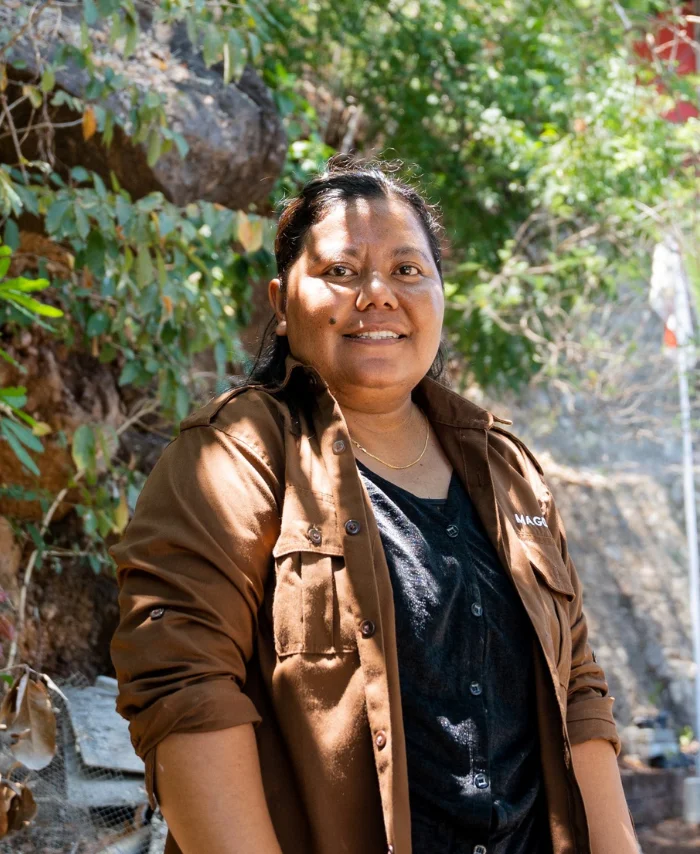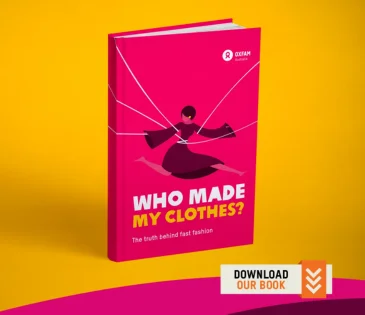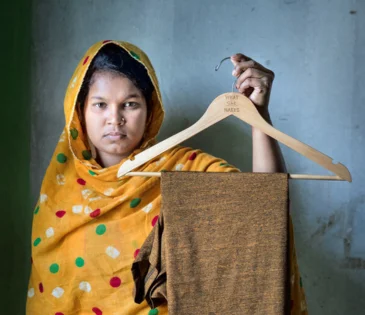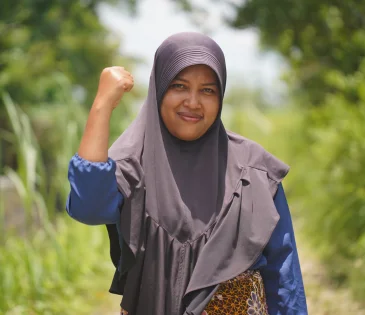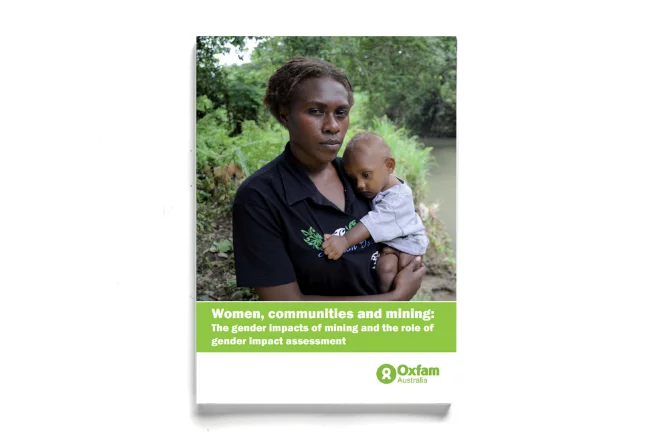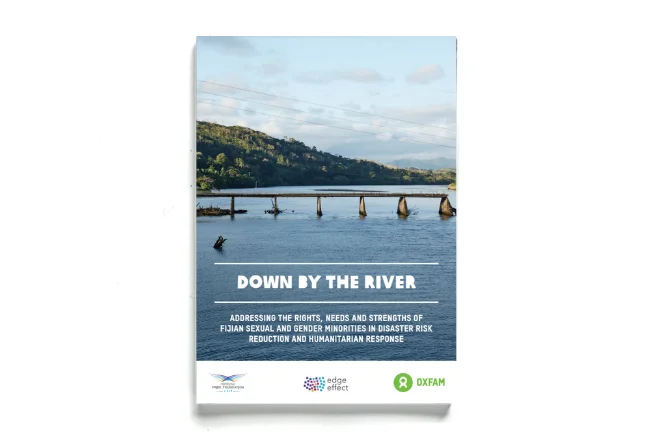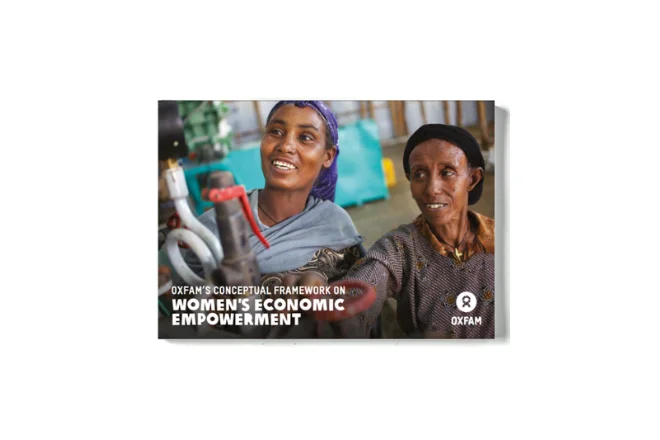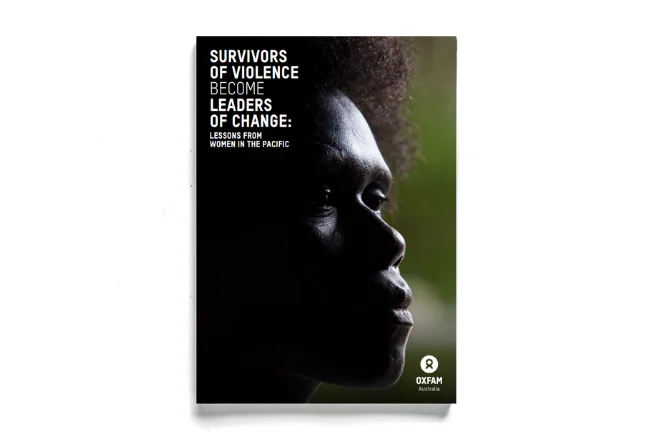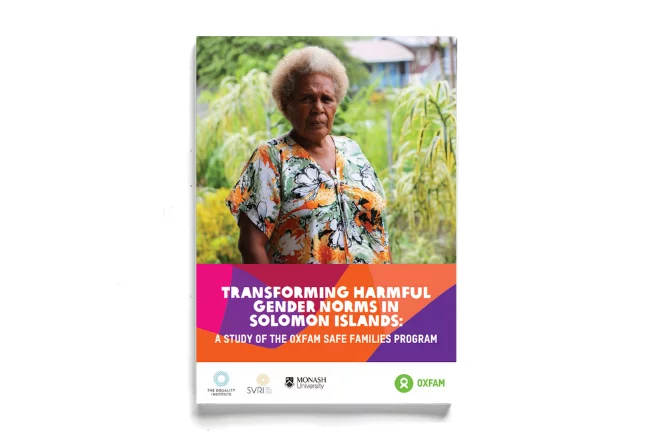Gender equality
We seek gender equality because all lives — hers, theirs and his — are equal.
Gender equality is achieved when people of all genders and sexual orientations have the opportunity to exercise and enjoy equal rights.
Society has made progress on advancing gender equality, but there are still huge gender gaps. All around the world, women, girls and people of diverse genders and sexualities are more likely than men to face discrimination and violence, and to live in poverty. They are also less likely to have the power to change their circumstances.
Gender inequality is a human construct, and we can overcome it. It is caused by gender bias in our systems, structures and attitudes, which create an environment where women, girls and people of diverse genders and sexualities are denied their rights to learn, earn equal pay and hold leadership positions.
Oxfam Australia recognises that many factors drive discrimination, including colonisation, location, social class, (dis)ability status, age, language, ethnicity, sexual orientation and gender identity. As identities are complex and overlapping, a person might face multiple forms of exclusion. For example, someone from a minority gender, sexual identity or racial background, who also has a disability, faces multiple disadvantage when it comes to enjoying equal rights.
Economic empowerment and equal opportunities
Women and girls face discrimination at home, at school and in the workplace, which means they do not have the same opportunities as men to earn a fair income. Girls are less likely to go to school, and women and girls largely bear the responsibility of unpaid care and household work.
To achieve gender equality, girls must be able to attend school alongside boys. Women, LGBTQIA+ people and people living with a disability must have the opportunity to develop the skills they need to earn an income.
Ending violence
Violence against women, girls, people from diverse genders and sexualities and people with disabilities is one of the most common human rights abuses in the world. To combat this violence, Oxfam Australia advocates for stronger laws that protect everyone, and we work with authorities to ensure these laws are enforced.
In many instances, we work in communities where prejudice and gender roles are deeply entrenched and result in harmful practices and social norms. We work together with men, women, LGBTQIA+ people and people with disabilities to understand, challenge and change the harmful attitudes and behaviours that lead to inequality.
In partnership with local rights-based organisations, we provide critical support and safe places for survivors of violence to go. When women, people of diverse genders and sexual orientations, and people with disabilities can live free from the threat of violence they will have the chance to live life to their full potential.
Challenging patriarchal structures
Our society is built on systems and structures that keep women, people of minority genders and sexual orientations and people with disabilities living in poverty. To achieve gender equality, representatives of all these communities must be at the table where decisions about their lives are made. That’s why we support programs that connect people from these groups with opportunities to gain the skills and confidence to speak up, be counted, lead and drive change.
For women and girls, the time they devote to caring and domestic work often leads to them missing out on career and leadership opportunities. Oxfam works with families to help them navigate a new way of distributing unpaid work.
When diverse sexuality and gender identity leads to discrimination, people’s right to make decisions about their bodies, sexuality, identity and intimate consensual relations are violated. That’s why a critical part of Oxfam’s work challenges legal and social barriers. We advocate for the rights of people in LGBTQIA+ communities and work in solidarity with LGBTQIA+ groups.
How is Oxfam promoting gender equality?
At Oxfam, we ensure that all our work, and the way we do it, contributes to gender equality by transforming the balance of power between men and people of other genders.
This means consulting people of all genders and sexual orientations and considering their different needs and perspectives in our work. This way, we ensure that our programs help change existing gender imbalances. Our work towards gender justice falls into the following primary areas:
- Women’s economic empowerment
- Women’s participation and leadership
- Ending violence
- Promoting the rights of people of all genders and sexualities, and people with disabilities
What is Oxfam doing to help?
Right across the globe, we partner with local organisations and governments to implement programs and projects that promote women’s rights and gender equality. Here are just a few of the many ways we are making a difference:
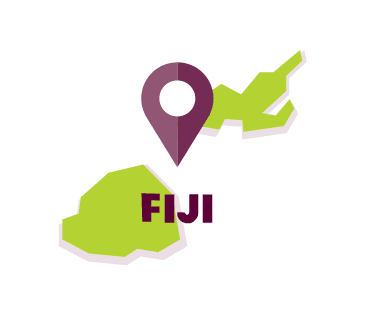
In Fiji, we are supporting people in sexual and gender minority communities, leading to opportunities for women’s economic empowerment.
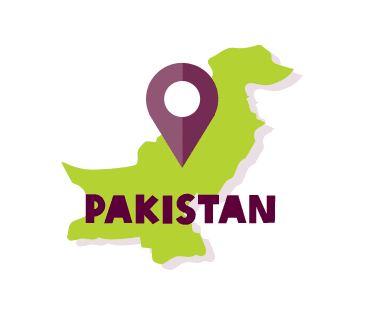
In Pakistan, we are working with women towards increasing their leadership opportunities and gaining equal participation in political processes.
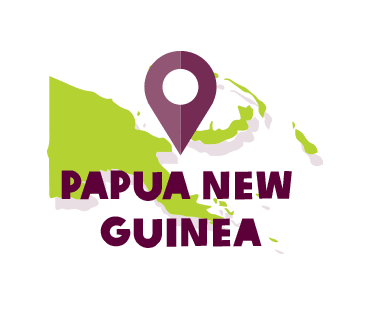
In Papua New Guinea, we are striving to end violence against women and girls, including sorcery-related violence.
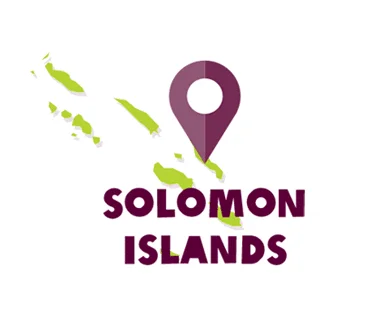
In Solomon Islands, we are engaging with men and boys, motivating them to reject domestic violence and adopt healthy attitudes and behaviours towards women and girls.
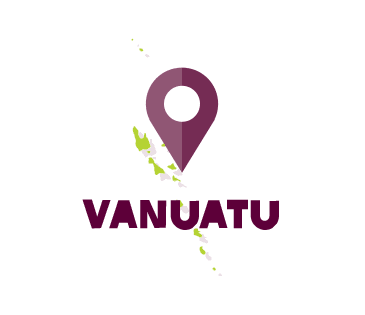
In Vanuatu, we are supporting programs that are creating opportunities for women, people with disabilities, young people and sexual and gender minority communities to earn a living.
Gender equality facts
- Today, nearly 120 million girls do not go to school (Malala Fund, 2024).
- Women perform most of the world’s unpaid care work, such as taking care of children and elderly relatives, which reduces their ability to participate in the paid workforce (The BMJ, 2021).
- Around 2.4 billion women of working age are not afforded equal economic opportunity (United Nations, 2024).
- In many countries, women cannot access reproductive health services or make decisions about their own bodies (United Nations Population Fund, 2021).
- Women are particularly vulnerable to poverty between the ages of 25 and 34, when they are most likely to have young children (UN Women, 2021).
- The global prevalence of child marriage has declined by about 10% in the past five years (United Nations, 2022).
- One in three women around the world experience physical or sexual violence at least once in their lifetime (World Health Organization, 2024).
- More than 230 million girls and women alive today have undergone female genital mutilation (World Health Organization, 2024).
- Studies reveal that LGBTQI+ people experience extremely high rates of violence all over the world (What Works to Prevent Violence, 2022).
- Globally, 66 countries criminalise consensual, same-sex sexual activity and 14 countries criminalise the gender expression/identity of transgender people (Australian Council for International Development, 2024).
Our stories
When you support Oxfam, you help create a world without the inequality that fuels poverty. Here's what that looks like for the communities we work with.
How can you help
Faqs
What does gender equality mean?
Oxfam recognises gender equality as full equality and equity between women, people of diverse genders and sexual orientation, and men. This means that in all areas of life, women and people of diverse genders and sexual orientation are equal with men and have an equal say in defining and shaping the policies and decisions that affect their lives, and society as a whole.
Why is gender equality an issue?
Gender equality is a human right, yet all over the world, women and people of diverse genders and sexual orientation face discrimination because of their gender. Gender inequality is the reason that more women and girls, and people of diverse genders and sexual orientation live in poverty, do not go to school, and experience violence.
Why is achieving gender equality important for sustainable development?
Gender discrimination can directly affect a person’s ability to access and control resources, such as money and services. This explains why gender and poverty are so connected. Often, we work in regions where harmful attitudes about gender are deeply entrenched. So, we make sure we engage whole communities to question and tackle the beliefs and behaviours that perpetuate inequality.
We also support projects around the world that empower people from sexual and gender minority communities and tackle the belief systems that stop these communities from having opportunities to participate equally in the world around them.
What is women's empowerment?
Women's empowerment refers to actions that promote the development of women's skills, knowledge and confidence to equally engage in education, work and decisions that impact their lives.
What are the seven Women's Empowerment Principles?
The Women’s Empowerment Principles were developed by UN Women and the United Nations Global Compact to guide business on how to advance gender equality and women’s empowerment.
The seven Women's Empowerment Principles are:
1. Create high-level corporate leadership for gender equality.
2. Treat all people fairly at work, respecting and supporting non-discrimination and human rights.
3. Ensure the health, wellbeing and safety of all workers, whether male or female.
4. Promote education, training and professional development for women.
5. Implement supply chain marketing practices and enterprise development that empower women.
6. Champion equality through community initiatives and advocacy.
7. Measure and report publicly on progress to create gender equality.
What are some examples of gender inequality in Australia?
1 in 4 women and 1 in 13 men in Australia have experienced sexual violence in their lifetime (ABS, 2021).
Women of all ages in Australia spend nine hours a week more than men on unpaid work and care work (ABS, 2021).
Women approaching retirement in Australia have 23.1% less superannuation than men of the same age (ATO, 2020).
How does education improve gender equality?
Girls are less likely to go to school than boys because poor families may prioritise educating their sons over their daughters, or schools may not be equipped with sanitation facilities to make school a welcoming place for girls.
Yet educating girls is one of the most direct ways to overcome poverty. Educated girls become educated women, who are more likely to lead healthy and productive lives and pass those benefits on to their own children.
How do we achieve gender equality?
At Oxfam, we believe that achieving gender equality means including people from all genders and sexual orientations in all aspects of society. It means appointing women and people of diverse genders and sexual orientations to more leadership roles. It means ending the sexual and physical violence that people in these communities face and providing access to reproductive health care for women and appropriate sexual health services for everyone. And it means working with men and boys to debunk beliefs and systems that oppress women and people of diverse genders and sexual orientations.
What can I do to help achieve gender equality?
1. Challenge yourself to have a conversation with people around you about the importance of tackling gender inequality. We know tricky conversations are hard — but they are a great opportunity to change someone’s mind.
2. Ask yourself if there is an equal division of labour in your own home or workplace. If you notice imbalances, try to have an open and honest conversation with those around you about the changes you’d like to make.
3. Be brave. Call out discriminatory behaviours impacting you or the women and sexual and gender minority communities around you.
4. Support Oxfam’s work around the world with a donation. We ensure that all of our work and the way we do it contributes to gender equality by transforming the balance of power between women, gender non-binary people and men.
Oxfam reports on gender equality
Women, Communities and Mining: The Gender Impacts of Mining and the Role of Gender Impact Assessment (2022)
This report presents a gender impact assessment framework to help avoid the potential negative gender impacts of mining. By doing a gender impact assessment, mining companies can ensure that their activities respect the rights of women and men; promote women’s empowerment and participation in community decision-making processes; and increase the benefits of mining. The report also encourages the informed and meaningful participation of women and men from mining-affected communities.
READ MOREDown By The River (2018)
This Down By The River report relays the priorities shared by Fijian sexual and gender minorities through their stories, and offers reflections from a workshop with Fijian disaster risk reduction (DRR) and humanitarian actors. The report provides guidance for substantive steps toward inclusion of sexual and gender minorities in DRR and humanitarian programs. The stories included in this report are Fijian and specific, but the themes resonate with the experiences of sexual and gender minorities in disasters around the world.
Read moreOxfam’s Conceptual Framework on Women’s Economic Empowerment (2018)
Women make up the majority of the world’s low-paid workers and they work mostly in the most precarious jobs. The full spectrum of women’s work is not recognised or respected, resulting in economic policies which undervalue women’s unpaid work and stigmatise women’s informal paid work. Creating decent work for women requires services and infrastructure to support unpaid care; ending the gender pay gap; and equal access to resources.
READ MORESurvivors of Violence Become Leaders of Change: Lessons from Women in the Pacific (2016)
The Pacific has one of the highest rates of violence against women in the world: in some Pacific countries, two in three women have experienced violence from a partner. Non-partner sexual violence and family violence are also rife. The most effective way to reduce violence against women and girls is to address the root causes, such as gender inequality, and provide survivors with access to justice and support.
READ MORETransforming Harmful Gender Norms in Solomon Islands: A study of the Oxfam Safe Families Program (2016)
This study presents evidence to help us understand the process of shifting harmful social norms that drive family and sexual violence in Solomon Islands. It will contribute to emerging evidence around what works to end violence against women and to broader research around violence prevention in the Pacific region.
READ MOREDiscover other areas of our work
FIRST PEOPLES JUSTICE
Working with First Peoples to achieve the change they seek.
CLIMATE JUSTICE
Ensuring justice for communities impacted by the climate crisis.
ECONOMIC INEQUALITY
Empowering communities to lift themselves out of poverty.
HUMANITARIAN AID
When an emergency hits, Oxfam is there.
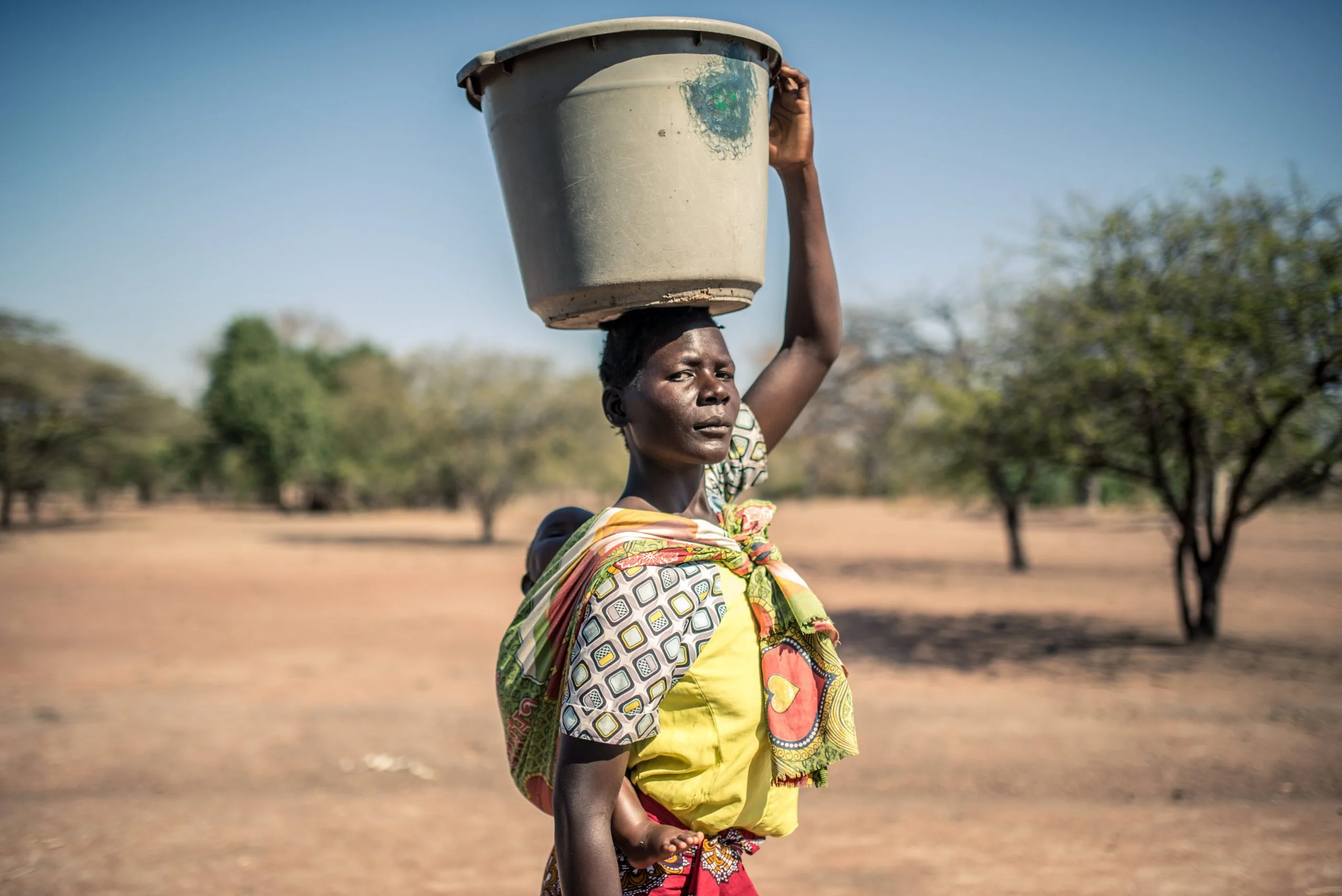
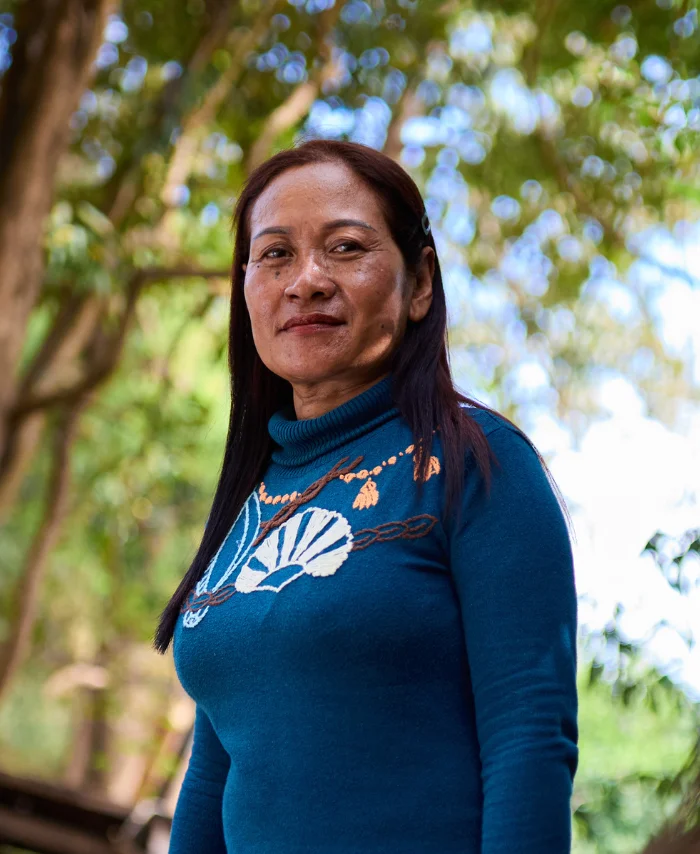
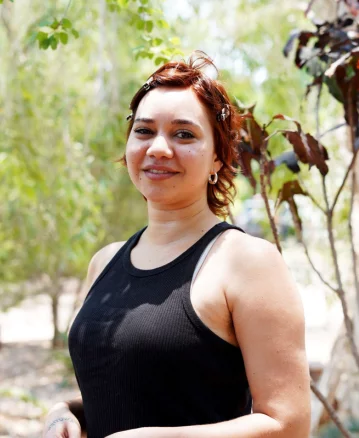
![Bangladesh: Munni is a tea garden worker and earns just 170 Taka [AU$2.30] per day. She has to take out loans in order to buy groceries and then struggles to pay these loans back. Munni attended training run by Oxfam partner organisation, Breaking the Silence, and says she has gained courage through this training. Photo: Fabeha Monir/Oxfam Bangladesh: Munni is a tea garden worker and earns just 170 Taka [AU$2.30] per day. She has to take out loans in order to buy groceries and then struggles to pay these loans back. Munni attended training run by Oxfam partner organisation, Breaking the Silence, and says she has gained courage through this training. Photo: Fabeha Monir/Oxfam](https://www.oxfam.org.au/wp-content/uploads/2024/08/Munni-crop.png.webp)

